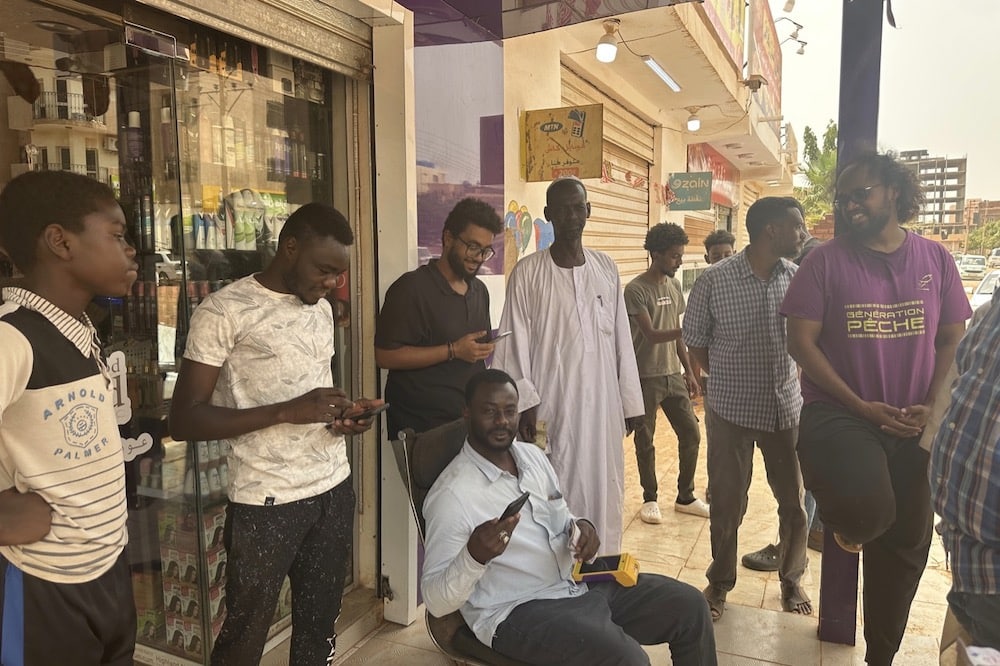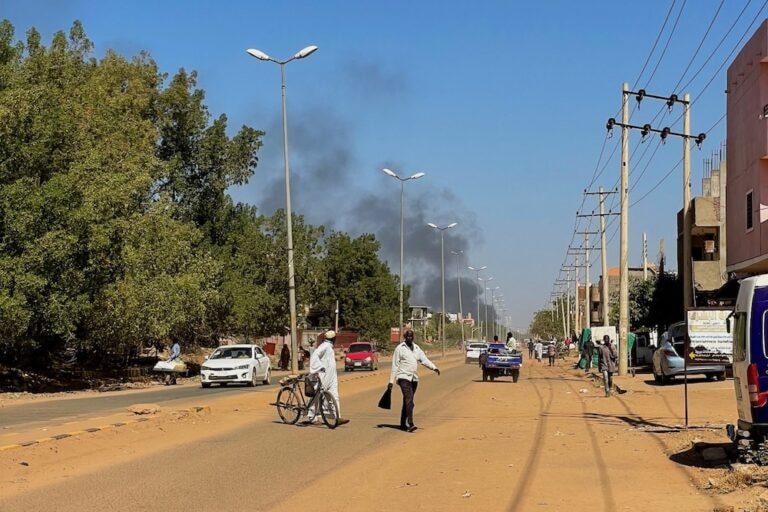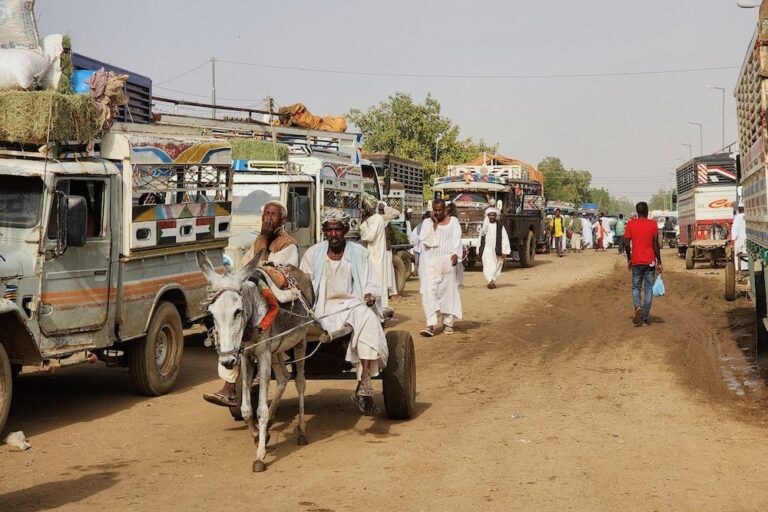As the country witnesses poor and unstable internet, warring factions on the ground are taking their battles online.
This statement was originally published on smex.org on 28 April 2023.
Internet in Sudan has been shut down intermittently amid armed clashes between the Sudanese army, led by Abdel Fattah Al-Burhan, and the Rapid Support Forces (RSF), currently headed by Muhammad Hamdan Dagalo (Hemedti).
On April 18, MTN Sudan shut down the internet for hours at the request of the government’s Telecommunications Regulatory Authority at the start of the conflict. After the truce collapsed a few days later, the country faced near-total internet blackouts as the fighting between the military and the Rapid Support Forces intensified.
Last night, Sudan witnessed nationwide internet disruptions following the power outage that affected the entire country on Sunday, April 23.
A Sudanese source told SMEX that the Sudatel network was cut off, and the Canar mobile network faced disruptions, while the MTN mobile network was barely functioning.
Connectivity improved for one day until throttling and internet blocking resumed in Sudan on April 25. Telecom services faced interruptions again today.
As the country witnesses poor and unstable internet, warring factions on the ground are taking their battles online, “with each party competing to spread its propaganda and promote its dose of fake news,” as several sources in Sudan reported to SMEX.
“Shutting down the internet during states of conflict is worrisome,” stated Mohamad Najem, executive director at SMEX, “as blackouts are meant to conceal evidence of human rights violations.
“Internet shutdowns mean that whoever blocks the service does not want certain information to spread. In most cases, these actors have malicious or even criminal motives, making the situation even bleaker in Sudan,” Najem added.
In a session held a day before the battles began, Sudanese digital rights researcher Khattab Hamad confirmed that “the telecommunications sector in Sudan was and still is under military control.”
Hamad added that internet access in Sudan is “better in major cities and some villages with extensive mining and oil exploration activities, and almost non-existent in remote areas or among low-income people within major cities.”
He said the alternative source for getting news is “radio or satellite, where and if available.”
SMEX strongly urges Sudanese authorities and the RSF to respect the rights of citizens and users and refrain from shutting down the internet—a measure that has severe humanitarian and economic implications.
During armed conflict, internet shutdowns endanger the safety of civilians, restrict access to emergency services, and prohibit people from contacting their families and loved ones. This harmful practice also restricts freedom of expression and enables armed forces to conceal human rights violations and crimes against humanity.
Join us in voicing our demands to the Sudanese authorities to stop internet shutdowns at all costs, especially during national events such as armed clashes, protests, and exams. Use the hashtags #NoInternetShutdown and #KeepItOn, and demand government institutions keep the internet on, especially in times of crisis.



